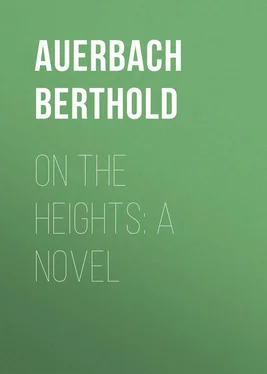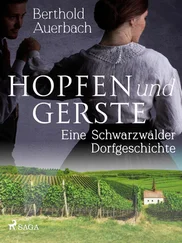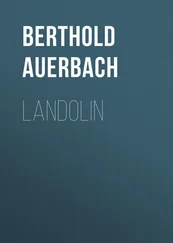Berthold Auerbach - On the Heights - A Novel
Здесь есть возможность читать онлайн «Berthold Auerbach - On the Heights - A Novel» — ознакомительный отрывок электронной книги совершенно бесплатно, а после прочтения отрывка купить полную версию. В некоторых случаях можно слушать аудио, скачать через торрент в формате fb2 и присутствует краткое содержание. ISBN: , Жанр: foreign_antique, foreign_prose, на английском языке. Описание произведения, (предисловие) а так же отзывы посетителей доступны на портале библиотеки ЛибКат.
- Название:On the Heights: A Novel
- Автор:
- Жанр:
- Год:неизвестен
- ISBN:http://www.gutenberg.org/ebooks/33294
- Рейтинг книги:4 / 5. Голосов: 1
-
Избранное:Добавить в избранное
- Отзывы:
-
Ваша оценка:
- 80
- 1
- 2
- 3
- 4
- 5
On the Heights: A Novel: краткое содержание, описание и аннотация
Предлагаем к чтению аннотацию, описание, краткое содержание или предисловие (зависит от того, что написал сам автор книги «On the Heights: A Novel»). Если вы не нашли необходимую информацию о книге — напишите в комментариях, мы постараемся отыскать её.
On the Heights: A Novel — читать онлайн ознакомительный отрывок
Ниже представлен текст книги, разбитый по страницам. Система сохранения места последней прочитанной страницы, позволяет с удобством читать онлайн бесплатно книгу «On the Heights: A Novel», без необходимости каждый раз заново искать на чём Вы остановились. Поставьте закладку, и сможете в любой момент перейти на страницу, на которой закончили чтение.
Интервал:
Закладка:
"'But our people only use prescribed prayers,' said I.
"'The thought is quite suggestive,' replied the king, and when Schnabelsdorf entered shortly afterward, he commissioned him to make brief notes of what fixed prayers the Grecians and Romans used in their temples.
"And thus the whole story ended. What I had imagined would create a deep impression, merely served to furnish amusement for an evening.
"Ah, dear Emma, amusement is the point about which all revolves. If an apostle were to appear to-day, he could not help preaching, 'Ask not, how shall we amuse ourselves to-day, but'-etc., etc., – finish the sentence for yourself.
"I am no better than the rest of them. I, too, am nothing but a puppet, wound up to run seventy years, and to dance and laugh and ride and amuse itself in the mean while. All of us are mere singing-birds; the only difference being that some are contented with grain and caterpillars and flies, while others require larger morsels, such as rabbits, bucks, deer, pheasants, fish. And the higher education of that variety of singing-birds known as man, lies in the fact that he cooks his food. There is terrible vacuity in many men. To make conversation. Therein lies the whole art. Try to get a clear notion of the expression: to make conversation , and you will find how nonsensical it is. The people find me entertaining, but I don't make conversation. I merely speak when I have somewhat to say.
"My evil spirit is constantly shouting the word ' dilettante ' in my ear.
"'Dilettante-One who junkets or feeds on tit-bits for pastime,'-says my dictionary. Rather rough, but there is something in it."
"One day later."The king has just sent me the following poem. I must apologize to him; he seems to have understood my communication far better than I had suspected. What do you think of the lines? Why should a king not write verses? Ideality is required of him. Indeed a king should understand all things, but be a dilettante in none.
"P. S. – I have just looked at the lines again, and find that I cannot copy them for you."
"A day later."Don't laugh at my continually telling you of Walpurga.
"It was during our writing-lesson to-day, that the king found me with her. He told me how much pleasure it had afforded him to be able to pardon her relative.
"'Our relationship is very distant,' said she, 'nothing more than forty-second cousins; and, Your Majesty, I've something on my mind. If Red Thomas turns out badly, I can't help it.'
"The king laughed and replied: 'Nor can I.' It is hard to understand how Walpurga never speaks of Zenza and her son except in anger, and that she will have nothing to do with them. Strange demons jostle each other in the hearts of the people. I fear that my office of spy on the popular heart will prove very difficult.
"By the king's orders, I have been furnished with a copy of the church prayers of the Greeks and Romans.
"I must write it down and then the idea will cease tormenting me. I am constantly picturing to myself, how would it have been if Zenza had become first lady of the bedchamber, and her son, the poacher, master of the hounds. She would be ready enough of speech. She has exceedingly clever and cunning eyes, and the lad would surely have been an elegant cavalier.
"In spite of all their prating about human equality and pride of birth, I cannot help regarding it as a sign of divine grace, that I was born a countess, instead of Zenza's daughter; but there are two sides to that question.
"God's creatures are not so badly off in this world, after all. The frog croaking in the marsh is just as happy as the nightingale that sings on the tree.
"To say to the frog, 'Thou, too, should'st dwell in the rosebush and sing like the nightingale,' were not humane, but simply tyrannical.
"Have you ever patiently listened to the croaking of the frogs? How expressive it is of comfort! While I write, they are having a grand concert over in the park pond. I enjoy listening to them. We human beings are impudent enough to judge everything by the standard of our own taste, and yet Mistress Frog will, very justly, find no music so sweet to her ears as the song of Master Frog.
"I feel so grateful, dear Emma, that I can write everything to you. You cannot imagine what a relief it is to me.
"I am a spy on my own heart; there are many wild spirits in it-adventurers and fortune-hunters and, with them all, a nun. I am quite curious to know how so mixed a company will get on together.
"My behavior toward the whole court is so free and independent, because I have a secret daily task: writing to you.
"But my thoughts go out to you a thousand times oftener:
There's not an hour in the silent night.
But what my thoughts go out to thee.
"Do you remember it? It was your favorite song. I sing it, for your sake, at least once every day. You and my piano are all in all to me. You patiently await my coming. All the music of all the masters that ever were. Or ever will be, dwells within you, and you only await the coming of the one whose touch can release those tones.
"I have a dual soul. In its one phase, the piano-in its other, the zither. The one is easily moved from place to place; the other not. The one requires that the fingers touch the strings. But ah, dear Emma, I scarce know what I am writing. I wish I could get rid of the habit of thinking. I wish I were Zenza's daughter and the poacher were my brother. But no; our thieves and rogues who have been at school long enough to know the seven cardinal sins and the whole of the catechism by heart, are timid and cowardly; they drop the petition for pardon into their mother's lap, while they stand by whining: Forgive us, we have done nothing wrong. All the world over, there is no longer genuine scorn of nature. Methinks the 'Italian robber behind the rock' that you once worked in wools, has, in these days, ceased to be more than a traditional pattern for embroidery. The arts simply serve to gloss over life.
"Good-night-good-night."
"A day later,"I never read what I have once written. I do not care to be reminded of it again. Yesterday's sun does not shine to-day. – But that was not what I meant. The sun is the same, but the light is ever new, and I am happy to-day and do not care for all the churches and palaces, men and women, frogs and crocodiles in the world.
"To-day, the king said to me:
"'I am well aware, Countess, that you have thought contemptuously of me, during the last two days. Every withdrawal of your sympathy affects me as sensibly as if it were an electric shock. Do not let this happen again, I beg of you!' and while he spoke, he looked at me like a beseeching child. Ah, he has such deep, beautiful eyes!
"I remember your once saying to me: 'There are glances without a background, void of depth or soul'; but the glances of this friend have unfathomed depths.
"The bonds that held me captive shall no longer restrain me! I-I-but no-I cannot write the word.
"Oh, Emma! How I wish I were a peasant on a lonely mountain height. Last night, it seemed to me as if my native mountains were calling out to me, 'Come home'-'Do come'-'It is good to be with us.' Ah, I would like to come, but cannot.
"Walpurga is a great friend to me at present. I become absorbed in her life, so full of true, natural repose. I find it excessively amusing to behold the court as reflected through her eyes. It seems like a very puppet-play, and we, like two merry children at a raree-show.
"We often sing together, and I have learned some lovely songs from her. Oh, how charmingly independent the country people are.
"'On mountain heights there dwells no sin.' The song is ever haunting me.
"The king departs for the baths to-day: my brother is in his suite. The king requested me to write to him, now and then. I shall not do it."
Читать дальшеИнтервал:
Закладка:
Похожие книги на «On the Heights: A Novel»
Представляем Вашему вниманию похожие книги на «On the Heights: A Novel» списком для выбора. Мы отобрали схожую по названию и смыслу литературу в надежде предоставить читателям больше вариантов отыскать новые, интересные, ещё непрочитанные произведения.
Обсуждение, отзывы о книге «On the Heights: A Novel» и просто собственные мнения читателей. Оставьте ваши комментарии, напишите, что Вы думаете о произведении, его смысле или главных героях. Укажите что конкретно понравилось, а что нет, и почему Вы так считаете.












